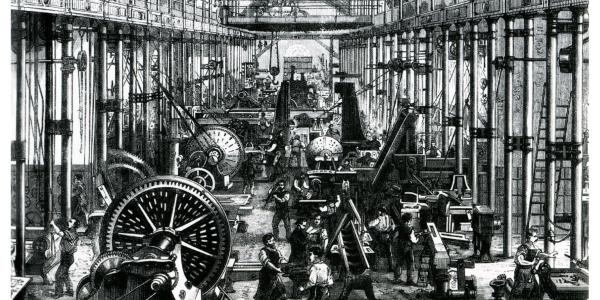The word “revolution” has lost a bit of its power. A toothbrush company might claim that their new bristles will revolutionize the way you brush your teeth, or maybe a couch company will say that their new couch is revolutionary, and you will never sit on a couch the same way again! The truth is, new doesn’t mean revolutionary. You’re going to brush your teeth like you always have with that new toothbrush, and you’re going to sit the way you’ve always sat on that couch.
Exaggeration dilutes words all the time. A revolution is supposed to be a huge deal. It’s a sudden overhaul of how things once were. It’s a changing of the guard, an indication that the old ways will be replaced or forever changed by the new ways. People have been heralding the next Industrial Revolution. Are we truly on the cusp of revolutionary change, or is it mere hyperbole?
The Industrial Revolution of the 18th century is an actual example of a revolution. Up until the 1760s, manufacturing and production was done mainly by hand. By the end of the Industrial Revolution, machinery was standard in manufacturing. Machinery totally changed how things were made. The types of things and the speed at which they could be made was unlike anything the world had seen before. People’s relationship with objects changed as objects became something to buy in a moment, not something to make over a period of days or weeks. The Industrial Revolution was literally revolutionary.
For the next Industrial Revolution to be here, industry has to change dramatically. People are making the case that the next revolution is here and it’s thanks to the Internet of Things, robotics, and 3D printing. It’s true that these things are changing industry, but are they changing enough to justify calling it a revolution? At the moment, it’s too early to call this a new Industrial Revolution. They are bettering how we do things, but we are still doing things in the same way. Maybe that’s all that it takes to start a revolution.
